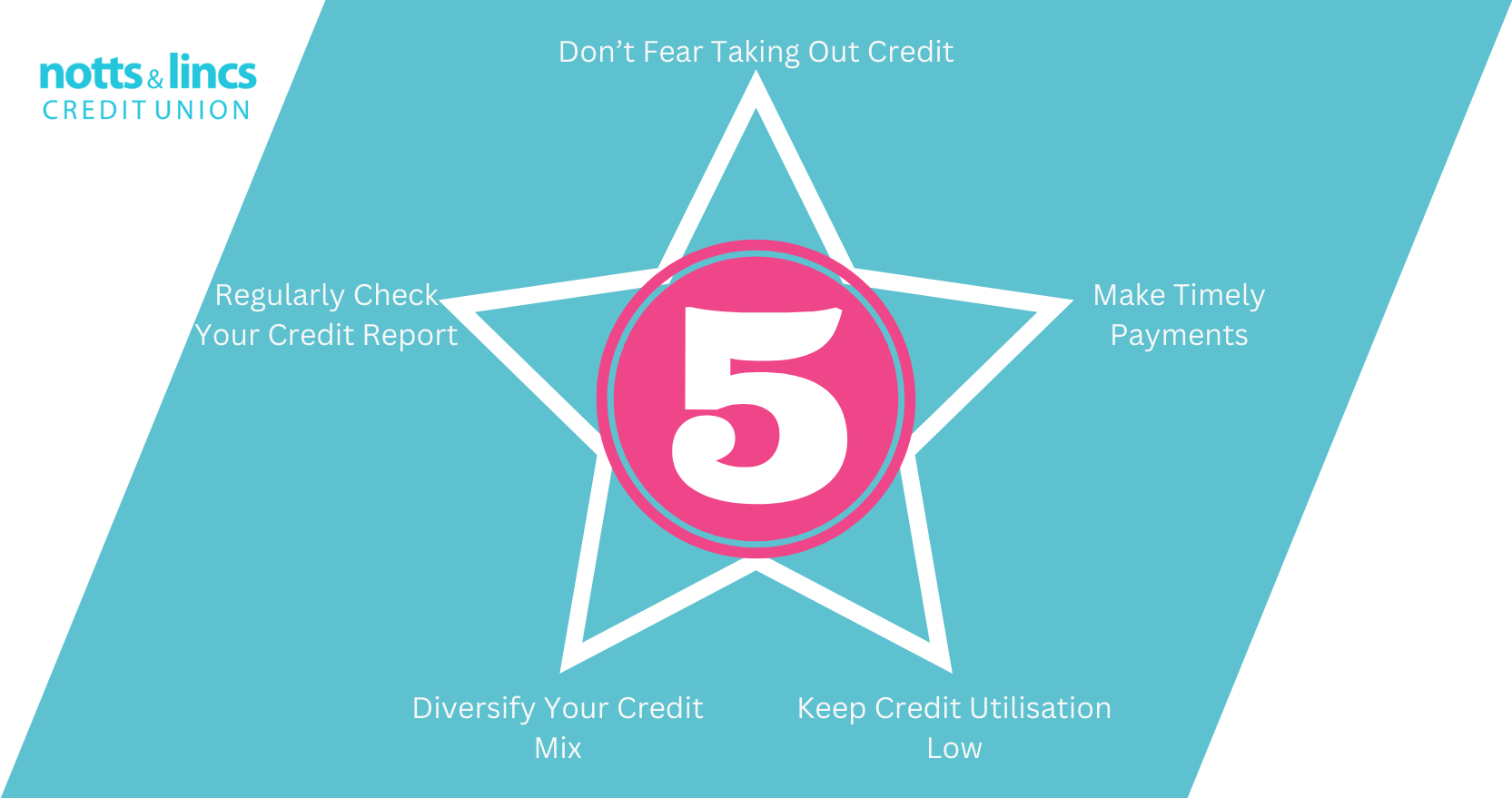5 Proven Strategies to Elevate Your Credit Score
Building a strong credit score is crucial for securing beneficial loan terms, renting/purchasing a property, and even landing certain jobs. Fortunately, there are several proactive steps you can take to boost your creditworthiness.
Looking for ways to boost your credit score? Follow the steps below:

Top 5 Ways to Build Your Credit Score
1. Don’t Fear Taking Out Credit
While it may seem counterintuitive, taking out credit can actually benefit your credit score. Responsible borrowing and timely repayments demonstrate your ability to manage debt responsibly, which can positively influence your creditworthiness.
Consider applying for a credit card or small instalment loan and use it wisely to establish a positive credit history. Just be sure to borrow only what you can afford to repay and always make timely payments to avoid damaging your credit. Over time, this proactive approach to credit utilisation can help build your credit score and strengthen your financial profile.
2. Make Timely Payments
Your payment history is one of the most significant factors influencing your credit score. Consistently paying your bills on time demonstrates reliability to creditors and can positively impact your score. Set up automatic payments or reminders to ensure you never miss a due date. This applies not only to credit cards but also to loans, rent, and utility bills.
3. Keep Credit Utilisation Low
Credit utilisation refers to the percentage of your available credit that you’re currently using. Aim to keep this ratio below 30% to avoid appearing overextended to lenders. For example, if you have a credit card with a £5,000 limit, try to keep your balance below £1,500. Paying down existing balances and avoiding unnecessary spending can help keep your utilization rate in check.
4. Diversify Your Credit Mix
Lenders like to see a mix of different types of credit on your report, such as credit cards, instalment loans, and mortgages. Having a diverse portfolio can demonstrate your ability to manage various forms of credit responsibly. If you don’t already have different types of credit, consider responsibly opening a new account or loan to diversify your credit profile.
5. Regularly Check Your Credit Report
Mistakes on your credit report can negatively impact your score. Regularly reviewing your credit report allows you to identify and dispute any inaccuracies. Take advantage of free credit score opportunities to ensure your credit report is error-free.

How can enhancing your credit score benefit you?
Boosting your credit score presents you as a lower risk to companies, increasing the likelihood of credit approval. This is because a high score reflects a track record of responsible credit management, including timely repayments.
The advantages of boosting your score may include:
1. Higher Approval Odds for Credit Cards, Mortgages, and Loans
Whether seeking a loan, credit card, or mortgage, a higher credit score enhances your prospects of approval. Additionally, you might gain access to a broader array of credit options and providers, potentially leading to cost savings.
2. Reduced Interest Rates
Lenders may offer more favourable interest rates on loans and credit cards to individuals perceived as lower risk, which can translate to lower borrowing costs. A solid credit score could pave the way for approval of low-interest loans or 0% introductory rate credit cards.
3. Favourable Car Insurance Rates
Your credit score can influence the interest charges applied if you opt to spread insurance payments over time, in addition to impacting your insurance premium.
4. Expanded Credit Limits
With an improved credit score, you stand a better chance of securing larger borrowing limits. This expanded capacity could accelerate progress toward goals such as purchasing a new vehicle or undertaking home renovations.
Credit Score FAQs
What is a credit score?
A credit score is a number that shows how likely you are to repay borrowed money. It is based on factors like payment history, debt levels, and length of credit history. Lenders use it to assess your creditworthiness and determine loan terms.
How can I check my credit score?
You can check your credit score through various credit reporting agencies or financial institutions. Many offer free credit score checks:
How often does my credit score change?
Your credit score can change frequently, depending on your financial behaviour and activities, such as making payments on time, applying for new credit, or paying off debt.
Does checking my credit score lower it?
No, checking your own credit score, known as a soft inquiry, does not affect your credit score. However, when a lender checks your credit (a hard inquiry), it may have a small, temporary impact on your score.
How long does negative information affect my credit score?
Negative information, such as late payments or bankruptcies, can stay on your credit report for up to seven to ten years, depending on the type of information.
Can I have a credit score without a credit history?
Yes, you can still have a credit score even if you have limited or no credit history. However, it may be lower due to the lack of information for lenders to assess your creditworthiness.
Join our community and benefit from a
more financially stable future